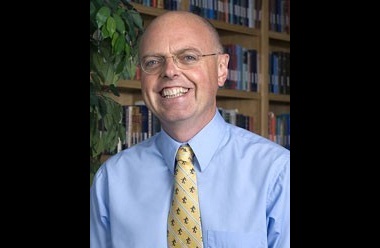 Hess attempted to argue that it was not Mesha's son who was the object of sacrifice, but rather the king of Edom's son, and that the "great wrath" that subsequently came upon Israel was not the wrath of Kemosh but rather that of the Edomite army, Israel's allies, who blamed the loss of their prince, not on Mesha, who supposedly is the one who burned him alive, but on Israel, for inviting them to come fight in the first place. I showed that the text doesn't come close to allowing for Hess's "reading," which is more accurately described as a re-writing.
Hess attempted to argue that it was not Mesha's son who was the object of sacrifice, but rather the king of Edom's son, and that the "great wrath" that subsequently came upon Israel was not the wrath of Kemosh but rather that of the Edomite army, Israel's allies, who blamed the loss of their prince, not on Mesha, who supposedly is the one who burned him alive, but on Israel, for inviting them to come fight in the first place. I showed that the text doesn't come close to allowing for Hess's "reading," which is more accurately described as a re-writing.But now I'd like to offer a concession to Hess. I concede that he is working with a severe handicap. You see, the most plain reading of the text is one that Hess cannot advocate, that is, if he wants to keep his job.
Hess teaches at Denver Seminary, an Evangelical institution that requires its faculty to affirm a doctrinal statement that includes a strict commitment to biblical inerrancy. Here is an excerpt from their "About Us" page:
Denver Seminary is committed to the great truths and abiding fundamentals of the Christian faith. Each year trustees, administration and faculty are required to affirm and sign Denver Seminary's doctrinal statement without mental reservation.
Yes, you read that correctly: "without mental reservation." In other words, the faculty aren't even supposed to have doubts, even if they keep those doubts to themselves. What does this doctrinal statement say? Well, it says a lot of things, but the very first item on the list is a statement of belief in the doctrine of biblical inerrancy:
1. THE WORD OF GOD - We believe the Scriptures of the Old and New Testaments are the inspired Word of God, inerrant in the original writings, complete as the revelation of God's will for salvation, and the supreme and final authority in all matters to which they speak.
Now, I'm not suggesting that Hess might have a different reading of 2 Kings 3:27 if he didn't work at Denver Seminary. I'm sure he signs the thought-control contract every year because he actually believes this stuff. To reiterate, I'm not accusing him of advocating compromised readings for money.
But the reality is, if Hess were to become convinced that 2 Kings 3:27 speaks of a sacrifice of the Moabite prince to Kemosh, which resulted in Kemosh's defeat of Yahweh in battle, well, he wouldn't be allowed to say so unless he was ready to "resign" his post.
Commitment to inerrancy is already enough of a hermeneutical handicap as it is, without compounding it with questions of job security. When are seminaries and Bible colleges going to learn that thought-control contracts are antithetical to academic investigation, that they stifle honest scholarship, and retard both intellectual and spiritual development?
No, I'm not calling Dr. Hess retarded; I'm calling compulsory doctrinal statements retardants. They also make victims of heroes. I'm not saying private institutions don't have the legal right to choose who they'll employ; I'm questioning whether they have the moral right.
I wish to God Evangelicals could learn to be a little more Jewish.